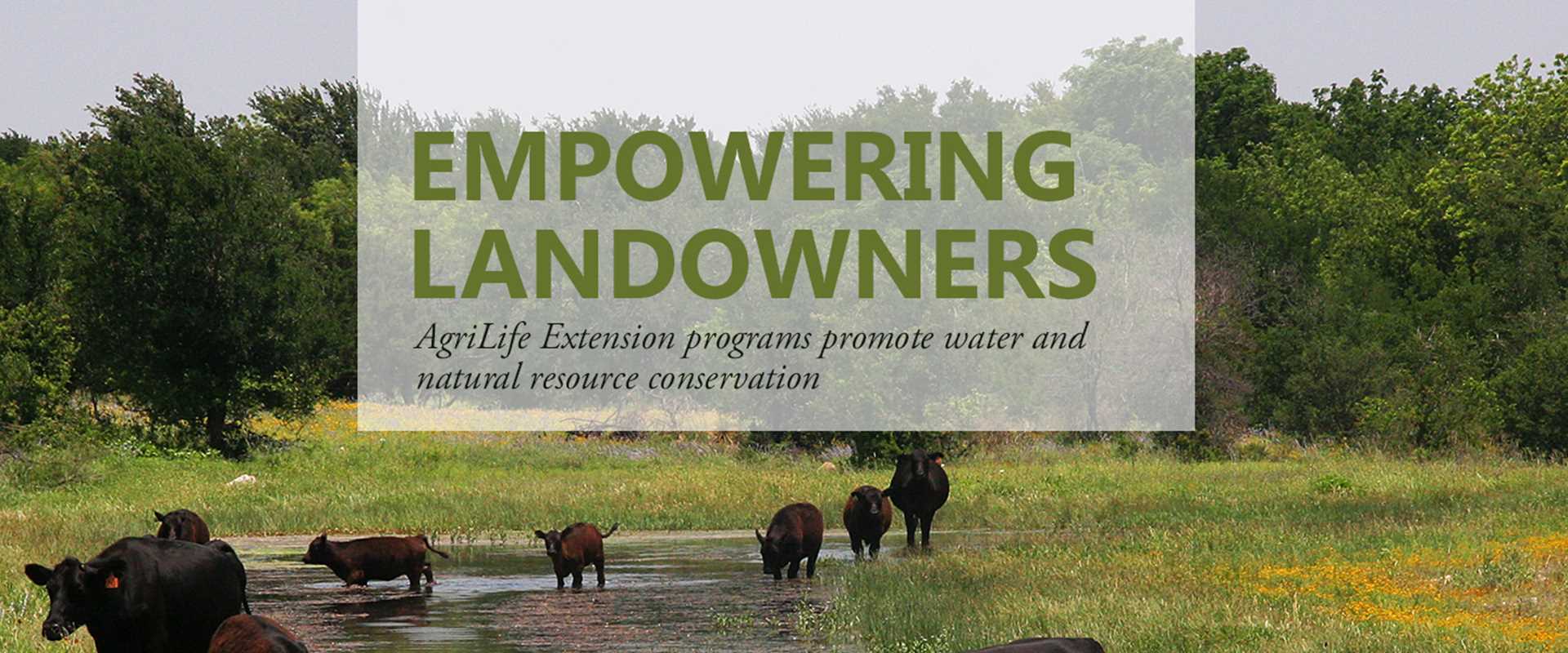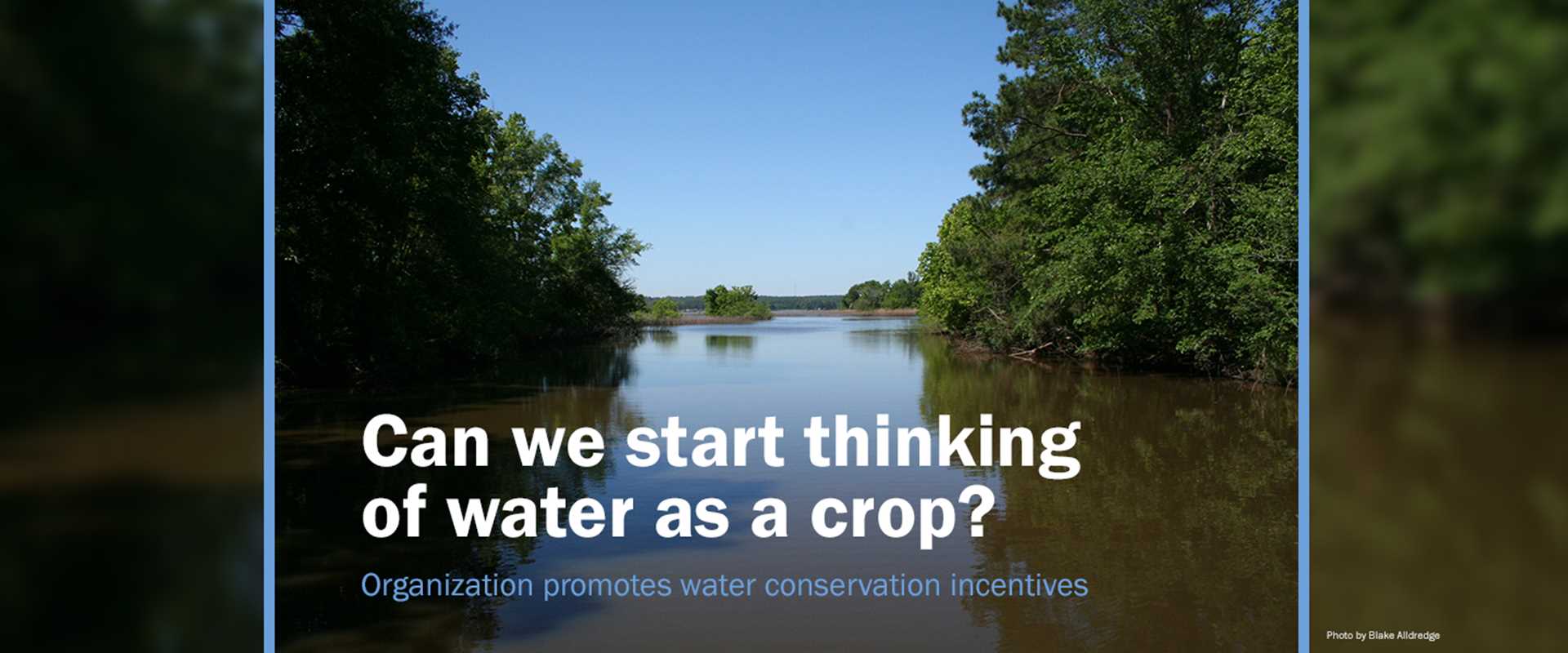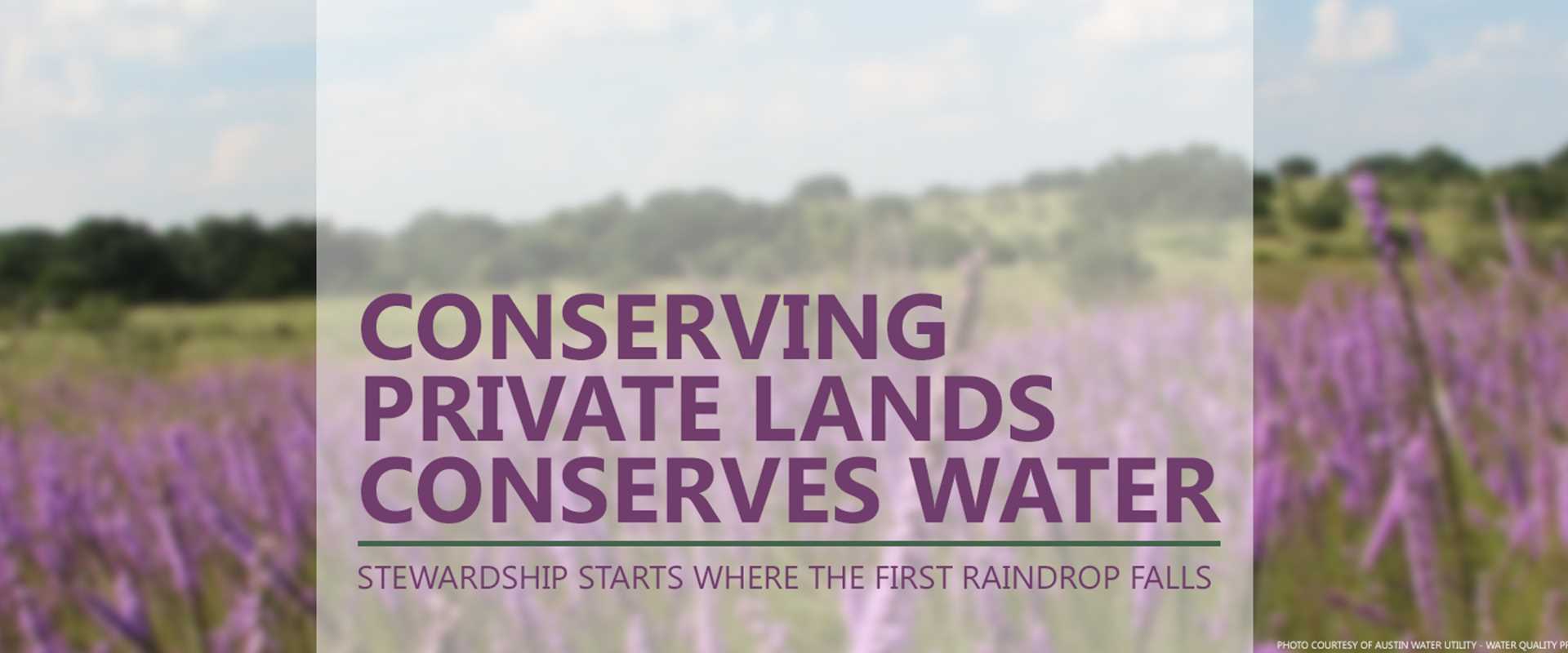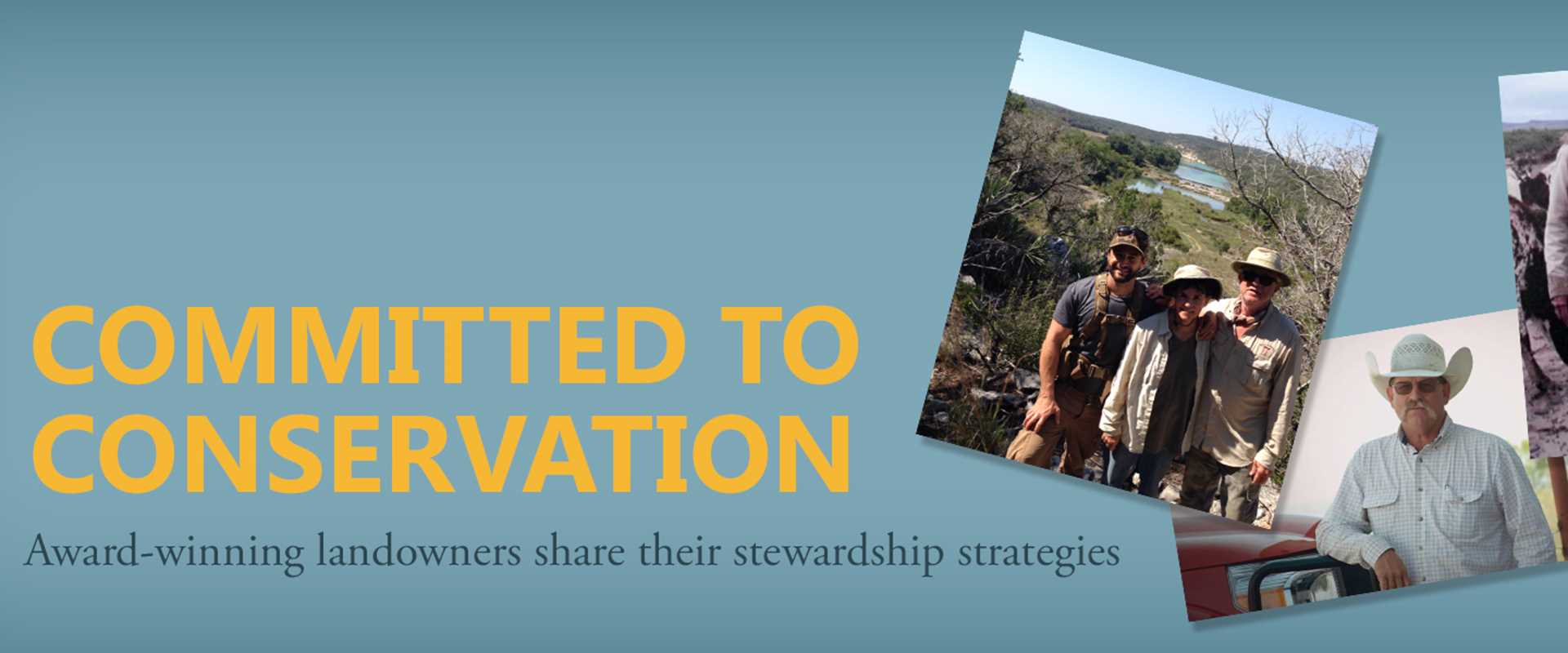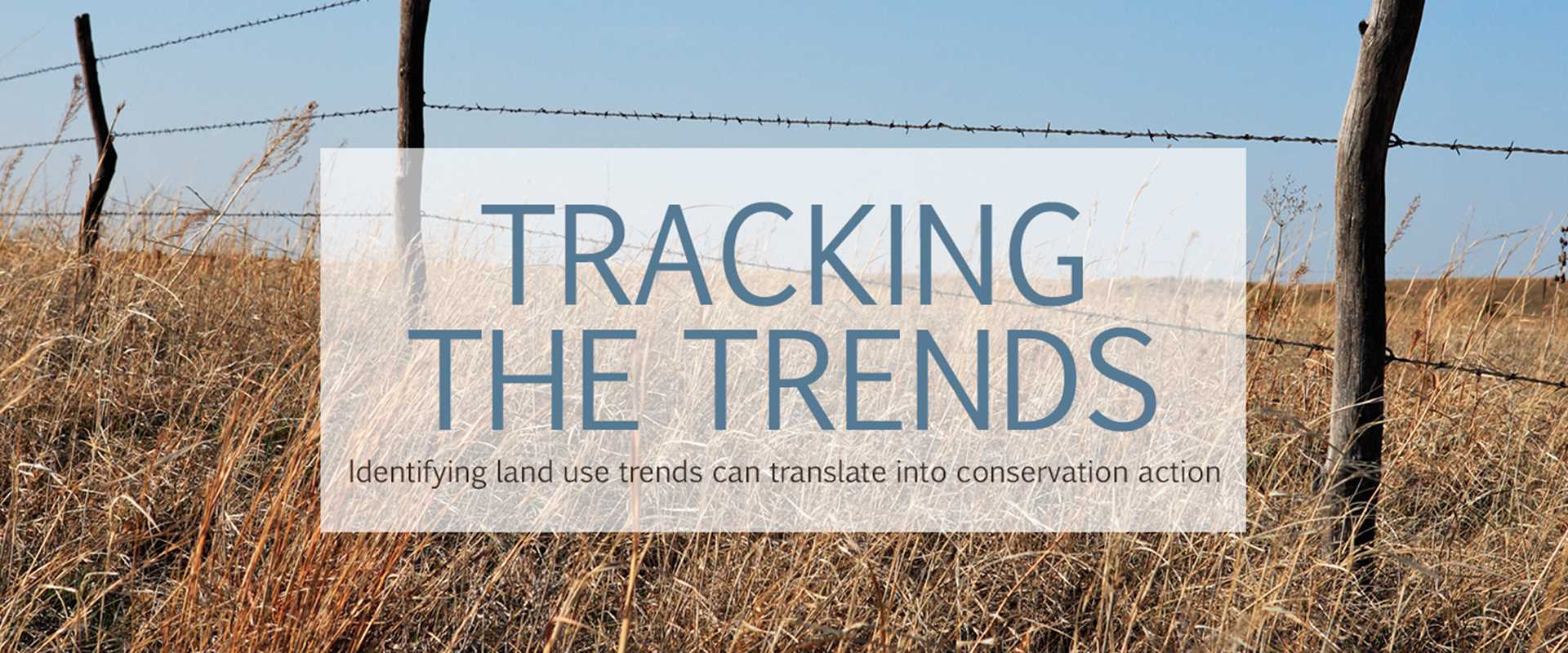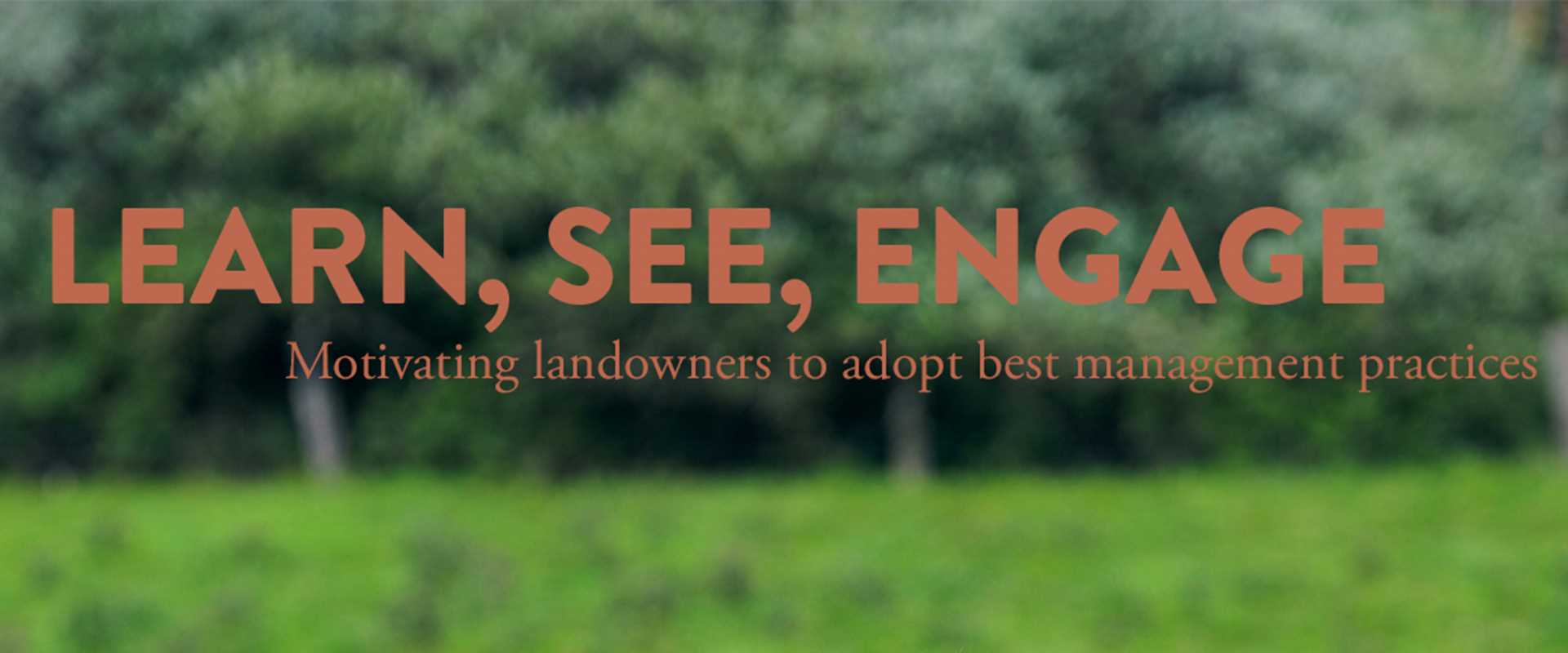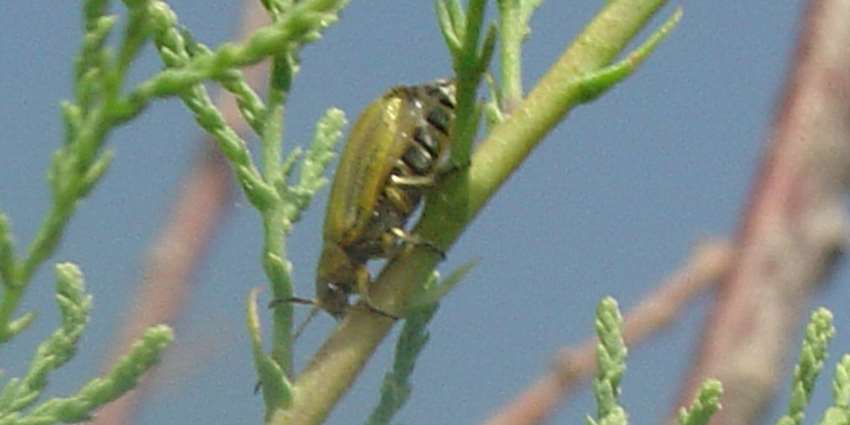Category: 2014
-
Empowering Landowners
By Sara Carney When it comes to land stewardship, education is essential to implementing best management practices (BMPs) on private lands. Educational programs not only foster awareness of conservation issues and provide landowners with the information necessary to adopt BMPs, but they also empower and inspire landowners to preserve natural resources. The Texas A&M AgriLife Extension…
-
Can we start thinking of water as a crop?
By Sara Carney Water is not traditionally thought of as a crop, but Water As A Crop® and its partners are hoping to change that. This organization promotes the idea that water falling on private, rural land can be effectively conserved and marketed in a manner similar to crops. In exchange for implementing conservation practices, rural landowners…
-
Conserving Private Lands Conserves Water
Former President and Texas native Lyndon B. Johnson once said: “Saving the water and the soil must start where the first raindrop falls.” In Texas, where about 95 percent of the land is privately owned, and 83 percent of that land is rural farms, ranches and forests, it is essential that all Texans understand the…
-
Committed to Conservation
By Leslie Lee In a state where rainfall is often unpredictable and generating income from wildlife or agriculture can be risky business, the challenge of conserving rural land and water resources is a passion project for many Texas landowners. “If I was a billionaire, I would buy as many ranches as I could and preserve…
-
Tracking the Trends
By Amy Buice and Kathy Wythe If Texans knew the threat that rural land loss and fragmentation posed to their water supplies and recreational activities, would they be more willing to protect those lands and would decision-makers be more likely to support financial incentives for the conservation of those lands? Through Texas Land Trends, the Texas A&M…
-
Learn, See, Engage
For years, natural resources professionals have worked to bridge the gap between research and application by establishing proven best management practices (BMPs) that benefit farms, ranches and working lands as well as improve water quality and quantity. But what motivates some landowners to adopt these practices while others do not? Looking at three different scenarios…
-
The Texas Water Observatory Network
Texans who will make future decisions about water — legislators, policymakers and water managers — are grappling with the challenge of better understanding the complexities of water within Texas. A group of Texas A&M University researchers is undertaking that challenge through a planned initiative, the Texas Water Observatory Network. Still in the development stage, this…
-
Texas A&M AgriLife salt cedar control team earns Vice Chancellor’s Award
The Salt Cedar Biological Control Team has been honored with the Texas A&M AgriLife Vice Chancellor’s Award in Excellence. The award was presented Jan. 9 during the Texas A&M AgriLife Extension Service Centennial Conference in College Station. The Vice Chancellor’s Awards in Excellence were established in 1980 to recognize the commitment and outstanding contributions of Texas A&M…
-
Texas A&M AgriLife salt cedar control team earns Vice Chancellor’s Award
The Salt Cedar Biological Control Team has been honored with the Texas A&M AgriLife Vice Chancellor’s Award in Excellence. The award was presented Jan. 9 during the Texas A&M AgriLife Extension Service Centennial Conference in College Station. The Vice Chancellor’s Awards in Excellence were established in 1980 to recognize the commitment and outstanding contributions of Texas A&M…
-
New report from Texas Comptroller analyzes drought economic impacts
Texas Comptroller Susan Combs has released a report examining the effects of the water challenges facing the state and offering recommendations to the Legislature. Texas Water Report: Going Deeper for the Solution, which revisits the effects of recent drought conditions, examines research-driven approaches for augmenting Texas’ water supply and proposes practical answers for the state’s growing thirst, according…

